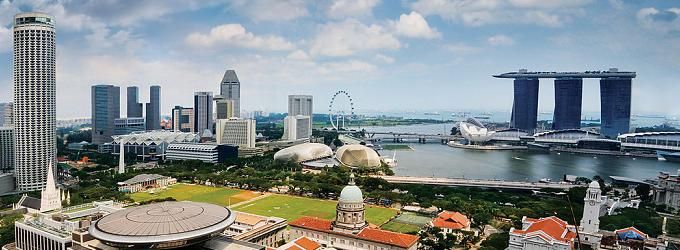ADB and SAES launch $1m clean energy programme
Asian Development Bank and the Sustainable Energy Association of Singapore launch new S$1 million programme that will train the region’s top officials on policy, technology, and project financing in the sustainable energy sector

The Asian Development Bank (ADB) and the Sustainable Energy Association of Singapore (SEAS) launched a new S$1 million programme on Thursday that will train the region’s top officials on policy, technology, and project financing in the sustainable energy sector.
SEAS will manage the ADB-funded Centre of Excellence for Renewable Energy, which will be the first of its kind in the region.
The centre will host seminars, workshops and sharing sessions for up to 150 policymakers annually from ADB’s 46 member countries.
Courses will be run by clean energy experts from around the world and trainees will be selected by ADB.
Singapore’s Minister of State for Trade and Industry, Teo Ser Luck, launched the programme at Cleantech Forum, organised by the Italian Trade Commission and SEAS at the Grand Copthorne Waterfront Hotel.
Edwin Khew, chairman of SEAS, hailed Singapore’s expertise on clean energy which could be valuable for government officials in the region.
Khew said that ADB and SEAS want to build technical capacity and “develop markets for the private sector to develop viable and bankable renewable energy and energy efficiency projects” in Asia.
Khew also highlighted how SEAS’s strong links with project developers, financial institutions and government agencies in Singapore and the region will help the initiative be successful.
Business opportunities for clean energy in Asia are in the region of US$2.5 trillion, according to Khew.
More than 600 million people in the region lack access to energy for lighting and around 1.3 billion people still live without access to clean cooking energy.
Jiwan Acharya, senior climate change specialist at ADB, has noted that the regions over-reliance on fossil fuel power sources is a crucial challenge for the region.
According to Acharya, addressing the problem will require increased funding and capacity building among policymakers to develop and implement clean energy projects.
Acharya said: “Financial institutions sometimes have money to invest, but say that there are no bankable projects.”
The centre will aim to equip policymakers with the skills to translate their ideas into viable and financially sound project proposals.
SEAS will aim for the centre to help cement Singapore’s position as a global hub for the sustainable energy sector and create market opportunities for sustainable projects in the region.
Acharya said: “Singapore was an obvious choice for the centre because of its strong focus on research and development, government support, and good examples.”
The first training session will be conducted in April or May, and subsequent sessions will be conducted on a monthly or bi-monthly basis.
The agreement is initially for a two-year period, with the possibility of extending the programme.


